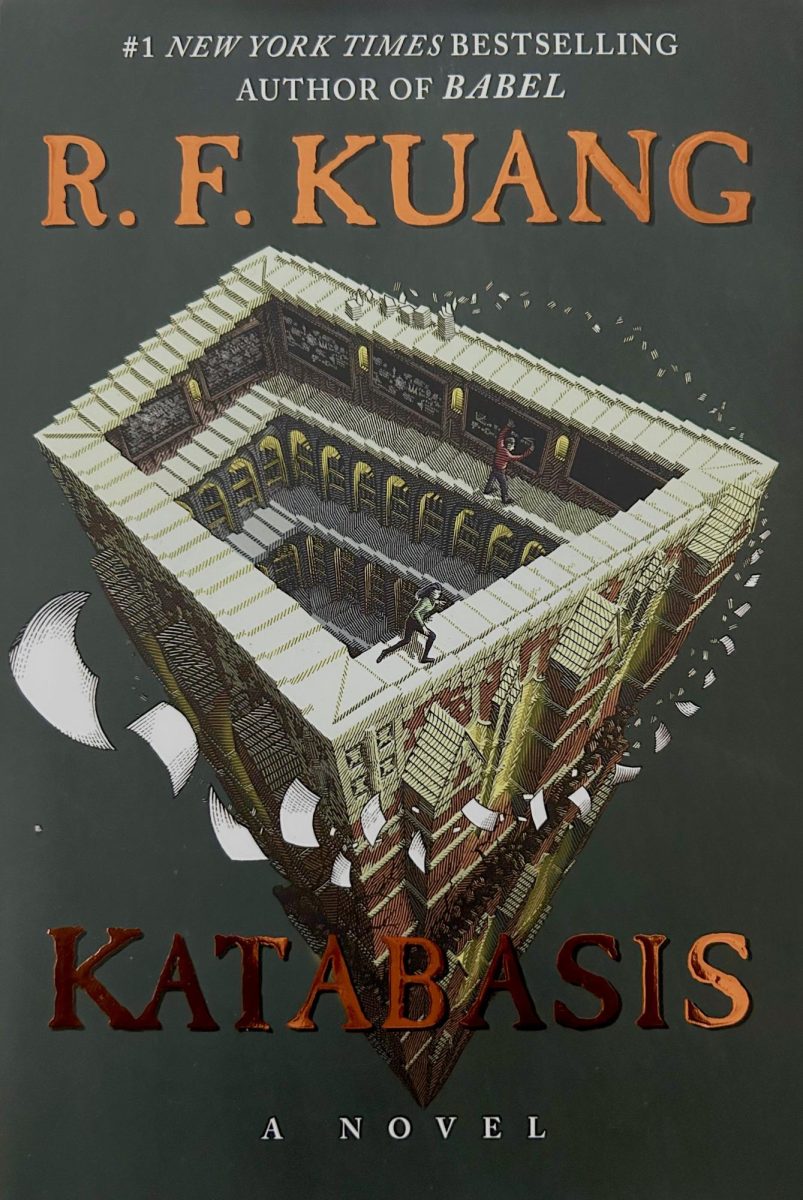Known for her critical and academic style, R.F. Kuang has published many acclaimed novels, almost all of which have gained some sort of cult following online.”Katabasis,” being her newest novel, has yet to gain that sort of following; however, I believe it is not far off.
The novel follows the story of two post-graduate (PHD) students, Alice Law and Peter Murdoch, at Cambridge studying Analytical Magik. Due to an unfortunate accident involving some sleep-deprived and possibly spiteful mistakes in pentagram drawing, the two students accidentally explode Professor Jacob Grimes, who, as their advisor, is responsible for the success of their studies. In an Orphean-style journey, the two decide to travel through hell in an attempt to bring his soul back to the land of the living.
Of the many academic aspects of this novel, the discussion of exactly how the underworld works is one of the most fascinating. If you grew up reading the Percy Jackson series or have any interest in mythology outside of that, the discussion is quite intriguing and thought-provoking. The Magik system is also very interesting, focusing on how magik could make sense in a seemingly logical world by exploiting seemingly illogical aspects.
Additionally, Kuang has stated that the two main characters are based on her and her husband, and that personal quality is shown in the careful treatment of the two and their relationship. Law and Murdoch complement and challenge each other; they learn from each other, and even the setbacks they experience are realistic to what a relationship entails. You can feel as they begin to fall in love, something that I feel is often missed in modern romance. It takes almost 300 pages for the two to even realize that they don’t hate each other. If, like me, you often have a distaste for modern romance as the ‘romance’ feels forced or inevitable, you will appreciate the relationship in this book.
Although this novel could be seen as a love letter to academia, Kuang also discusses the rampant misogyny and exploitation of women in higher education with little to no filter, exposing aspects that other authors tend to brush past, and it makes for a realistic and cathartic reading experience. Yet, it is not seen as a forgone conclusion, as seen in the last few chapters of the novel, Kuang rebuts the stereotypes in several ways, something that is wholly necessary in academic literature.
One of the most common complaints I have seen for this book is a critique of its style; some claim it “reads like a textbook.” While Kuang does reference many academic systems, ancient texts, and metaphysical concepts, the novel does a very good job of ensuring that you need not prepare with any “required reading,” as some have suggested. These concepts are explained just enough that they in no way hinder the reader’s enjoyment or understanding of the novel.
On the contrary, I felt that it had introduced me to many new ideas and books that I would like to read after seeing how they were used to further the story. Additionally, the book is most certainly written in modern fiction prose; it is in no way clinical or boring like a textbook may be.
My only true critique of the plot is that there are several moments where the protagonist is just (literally, on occasion,) handed the answer to her dilemmas. While there are several moments where the answers must be fought for, these occasions did feel a tad bit “Dios de la Máquina.” Overall, though, these moments are few in comparison and do not take away from the momentum of the story.
“Katabasis” has given me hope for the future of literature. While there are many things to praise about this book, I think the most important is its resistance to falling into the traps of genre lit. This novel could be described as a fantasy, a romantasy, a bildungsroman, a modern classic, a dark academia, but I think it is best to describe it as what it is. It is an epic journey, a return to form that honors the work of thousands of Greek poets that came before it, and I hope that Kuang continues to write masterpieces such as this. If there is any novel from 2025 you should add to your “TBR,” “Katabasis” is top of the list.


